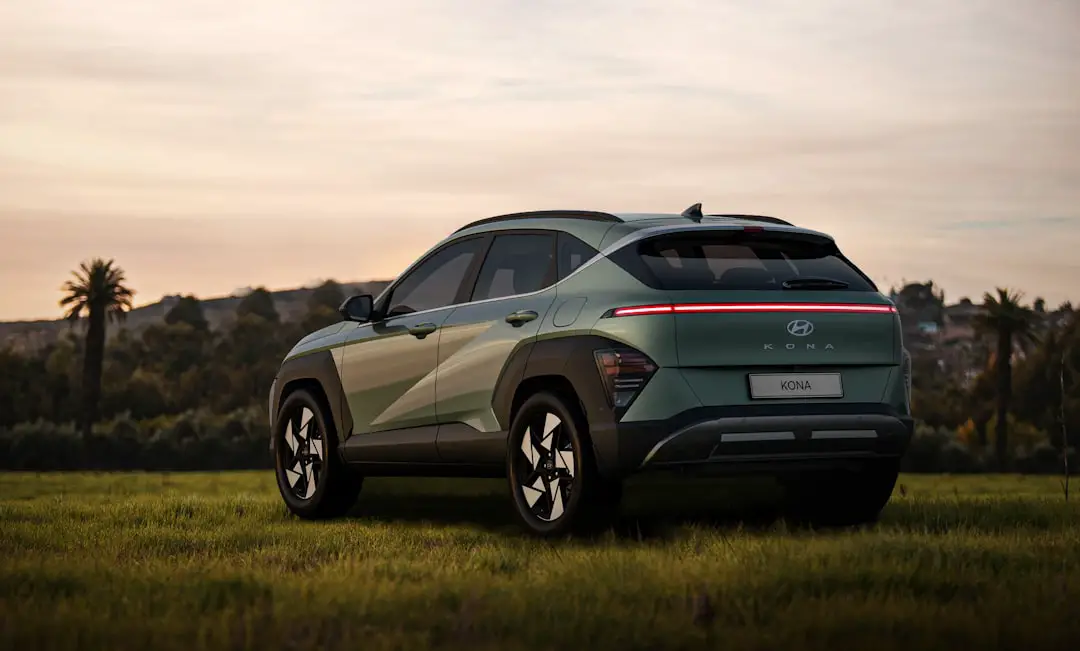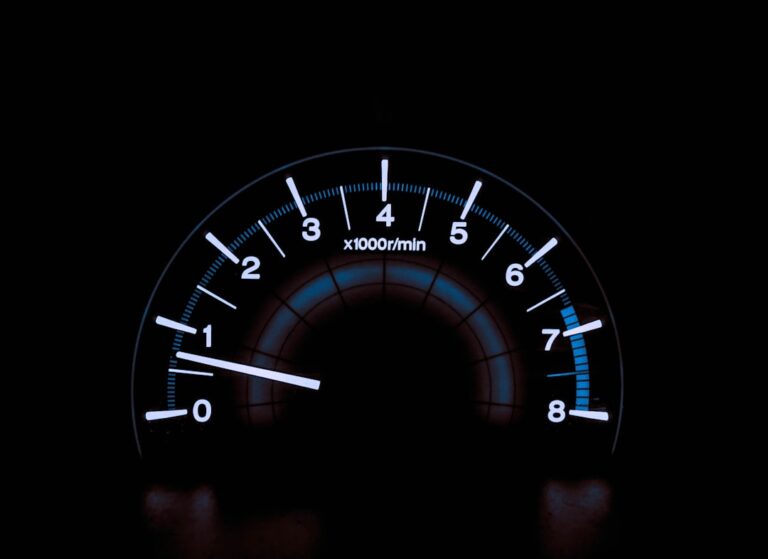Support our educational content for free when you purchase through links on our site. Learn more
Can You Claim EV Tax Credit if You Lease? [2024] 🚗💸
Picture this: you’re in the market for a new electric vehicle (EV), and you’ve heard about the enticing $7,500 federal tax credit that comes with purchasing one. But what if you prefer to lease your EV instead of buying it outright? Can you still claim the EV tax credit? The answer might surprise you! In this comprehensive guide, we’ll delve into the world of EV leasing and explore whether you can take advantage of the tax credit. So buckle up and let’s dive in!
Quick Answer: Yes, You Can Claim the EV Tax Credit if You Lease! ✅💰
If you’re considering leasing an electric vehicle, we have good news for you! You can indeed claim the $7,500 federal tax credit, even if you choose to lease instead of buying. This is thanks to a leasing loophole created by the Inflation Reduction Act, which categorizes leased vehicles as commercial vehicles. As a result, almost any electric car is eligible for the full tax credit, regardless of whether it’s purchased or leased.
Now that we’ve answered the burning question, let’s explore the ins and outs of leasing an EV and how you can benefit from this tax credit.
Quick Tips and Facts 📝💡
Before we dive into the details, here are some quick tips and facts to keep in mind:
- Leasing an electric vehicle allows you to enjoy the benefits of driving an EV without the long-term commitment of ownership.
- The $7,500 federal tax credit is a significant incentive that can help offset the cost of leasing an EV.
- Leasing an EV often results in lower monthly payments compared to buying, making it an attractive option for budget-conscious individuals.
- The leasing loophole that allows you to claim the tax credit applies to both new and used electric vehicles.
- The tax credit is non-refundable, meaning it can only be used to offset your tax liability. If you don’t owe enough in taxes to claim the full credit, you won’t receive a refund for the remaining amount.
Now that you have a solid foundation, let’s explore the background and history behind the EV tax credit and how it applies to leasing.
Background: The Evolution of the EV Tax Credit 📜🔍

The federal tax credit for electric vehicles was introduced as part of the Energy Improvement and Extension Act of 2008. Its purpose was to incentivize the adoption of electric vehicles and reduce greenhouse gas emissions. Initially, the tax credit was limited to $7,500 and applied only to the purchase of new electric vehicles.
Over the years, the tax credit has undergone several changes and extensions to accommodate the evolving landscape of electric vehicles. One significant change came with the Inflation Reduction Act, which expanded the eligibility of the tax credit to include leased electric vehicles.
This leasing loophole was a game-changer for EV enthusiasts who preferred the flexibility and affordability of leasing. It opened up the opportunity for more people to take advantage of the tax credit and enjoy the benefits of driving an electric vehicle without the long-term commitment of ownership.
Why Leasing an Electric Vehicle is a No-Brainer! 💡🔌
Leasing an electric vehicle comes with a myriad of benefits, and when you factor in the ability to claim the EV tax credit, it becomes an even more enticing option. Let’s explore why leasing an EV is a no-brainer for many drivers:
1. Lower Monthly Payments 💸
One of the most significant advantages of leasing an electric vehicle is the lower monthly payments compared to buying. Leasing allows you to pay for the depreciation of the vehicle over the lease term, rather than the full purchase price. This can result in significantly lower monthly payments, making an EV lease more affordable for many individuals.
2. Access to the Full Tax Credit 💰
When you lease an electric vehicle, you have the opportunity to claim the full $7,500 federal tax credit. This credit can be applied to reduce your monthly lease payments, effectively lowering the overall cost of leasing an EV. It’s like getting a discount on your lease just for choosing an electric vehicle!
3. Flexibility to Upgrade 🔄
Leasing an electric vehicle provides a sort of technology insurance. As EV technology continues to advance rapidly, leasing allows you to upgrade to newer models without worrying about battery degradation or resale value. You can enjoy the latest features and advancements in EV technology without the hassle of selling or trading in your vehicle.
4. Environmental Benefits 🌱
By leasing an electric vehicle, you’re contributing to a more sustainable future. EVs produce zero tailpipe emissions, reducing greenhouse gas emissions and improving air quality. Leasing an EV allows you to be part of the sustainable transportation evolution and make a positive impact on the environment.
5. Strong Resale Values 💪
Electric vehicles have shown strong resale values, making them an attractive option for leasing. The rising demand for used EVs and the limited supply contribute to their higher resale values. This, in turn, translates to lower lease payments for you, as the leasing company can recoup a significant portion of the vehicle’s value when it’s returned at the end of the lease term.
How to Claim the EV Tax Credit When Leasing 📝💸
Now that you’re convinced that leasing an electric vehicle is a fantastic option, let’s explore how you can claim the EV tax credit when leasing. Here’s a step-by-step guide to help you navigate the process:
-
Confirm Eligibility: Ensure that the electric vehicle you’re leasing qualifies for the federal tax credit. Most new electric vehicles on the market today are eligible, but it’s always a good idea to double-check with the manufacturer or consult the IRS guidelines.
-
Check Lease Terms: Review the terms of your lease agreement to determine how the tax credit will be applied. Some leasing companies may pass on the full tax credit to you, reducing your monthly lease payments. Others may factor the tax credit into the lease terms, resulting in lower overall costs.
-
Complete IRS Form 8936: To claim the EV tax credit, you’ll need to complete IRS Form 8936, “Qualified Plug-in Electric Drive Motor Vehicle Credit.” This form will calculate the amount of the tax credit you’re eligible for based on the specific details of your lease.
-
Consult a Tax Professional: If you’re unsure about how to navigate the tax credit process, it’s always a good idea to consult a tax professional. They can provide personalized advice and ensure that you’re maximizing your tax benefits.
-
Keep Documentation: As with any tax-related matter, it’s crucial to keep thorough documentation of your lease agreement, payment history, and any other relevant documents. This will come in handy if the IRS requests additional information or if you need to reference the details of your lease.
By following these steps, you can confidently claim the EV tax credit and enjoy the financial benefits of leasing an electric vehicle.
FAQ 🙋♀️🙋♂️

Q: Can you get the $7,500 EV tax credit on a lease?
A: Absolutely! Leasing an electric vehicle makes you eligible for the full $7,500 federal tax credit. The leasing loophole created by the Inflation Reduction Act allows leased vehicles to be categorized as commercial vehicles, making them eligible for the tax credit.
Q: What is the tax loophole for leasing an EV?
A: The tax loophole for leasing an EV stems from the Inflation Reduction Act, which categorizes leased vehicles as commercial vehicles. This categorization allows lessees to claim the full $7,500 federal tax credit, just like those who purchase an electric vehicle.
Q: Do leased vehicles qualify for the EV tax credit IRS?
A: Yes, leased vehicles do qualify for the EV tax credit. The IRS considers leased electric vehicles eligible for the tax credit, thanks to the leasing loophole created by the Inflation Reduction Act.
Q: Why is leasing an EV a no-brainer?
A: Leasing an electric vehicle is a no-brainer for several reasons. It offers lower monthly payments, access to the full $7,500 tax credit, flexibility to upgrade to newer models, environmental benefits, and strong resale values. Leasing an EV allows you to enjoy the perks of driving an electric vehicle without the long-term commitment of ownership.
If you have any more questions about leasing an electric vehicle and claiming the tax credit, feel free to reach out to us. We’re here to help!
Conclusion: Leasing an EV and Claiming the Tax Credit – A Winning Combination! 🏆💸

Leasing an electric vehicle and claiming the $7,500 federal tax credit is a winning combination that allows you to enjoy the benefits of driving an EV while saving money. With the leasing loophole created by the Inflation Reduction Act, you can take advantage of the tax credit and lower your monthly lease payments.
Leasing an EV offers lower monthly payments, access to the full tax credit, flexibility to upgrade, environmental benefits, and strong resale values. It’s a no-brainer for many drivers who want to experience the joys of driving an electric vehicle without the long-term commitment of ownership.
So, if you’re considering an electric vehicle and prefer the flexibility of leasing, go ahead and take the plunge! Enjoy the financial benefits, the environmental impact, and the cutting-edge technology that comes with driving an electric vehicle.
To explore the latest car lease deals, learn more about car lease basics, or dive into the world of electric vehicle leases, check out our other informative articles on Car Leases™. And if you’re curious about the tax benefits of leasing a Tesla specifically, be sure to read our article on “Does Leasing a Tesla Qualify for the Tax Credit?”.
Remember, the future of transportation is electric, and leasing an EV is a fantastic way to join the sustainable transportation evolution. Happy leasing!
Recommended Links 🌐🔗
- Latest Car Lease Deals: Check them out here
- Car Lease Basics: Learn more here
- Electric Vehicle Leases: Discover more here
- Credit Score and Car Leasing: Find out more here
- Best Lease Terms: Explore them here



